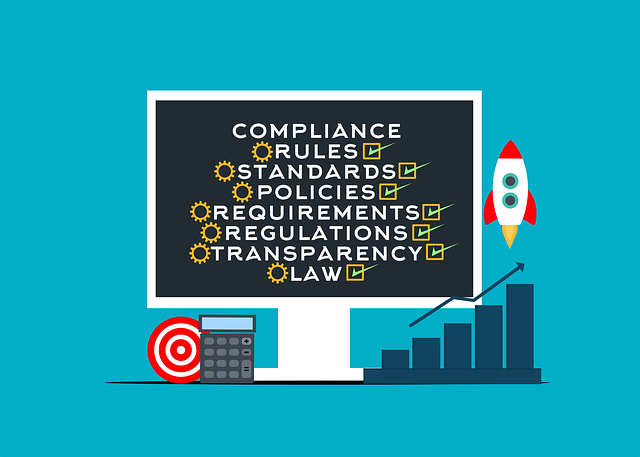In today's digital age, transparency is crucial in real estate, making realtor background screening a vital tool for protecting clients and agents from unethical practices. Thorough checks uncover risks like criminal records, employment history, and disciplinary issues, ensuring industry integrity. This process requires understanding local, federal, and state laws, balancing consumer protection with individual rights, and maintaining data security. Regular staff training is essential for compliance and building trust. Effective screening methods include comprehensive background checks using online platforms to reveal past legal issues, while reviewing public records and license databases ensures informed client decisions. Balancing privacy protection and transparency, realtor background screening enhances client trust and promotes accountability among professionals in substantial financial transactions.
In today’s digital era, choosing a real estate agent is a significant decision. Understanding the importance of realtor background screening is crucial for both agents and clients. This article explores legal considerations and compliance for background checks, effective methods to screen real estate agents for criminal history, and balancing privacy concerns with ensuring trustworthy professionals. By delving into these key aspects, we aim to provide insights on how to maintain a safe and reliable environment in the real estate industry through comprehensive realtor background screening.
- Understanding the Importance of Realtor Background Screening
- Legal Considerations and Compliance for Background Checks
- Effective Methods to Screen Real Estate Agents for Criminal History
- Balancing Privacy Concerns with Ensuring Trustworthy Professionals
Understanding the Importance of Realtor Background Screening

In today’s digital era, where trust and transparency are paramount in every industry, real estate stands out as a sector that demands rigorous scrutiny. Among the various aspects crucial to ensuring consumer protection, realtor background screening is an indispensable practice. It serves as a protective measure for both clients and agents themselves, fostering integrity within the profession.
By delving into a comprehensive background check, potential red flags can be identified early on—including criminal history, previous employment records, and any disciplinary actions taken against the agent. This proactive approach not only safeguards clients from unethical practices but also helps maintain the reputation of the real estate industry as a whole. In light of these considerations, implementing robust realtor background screening processes is essential to navigating the complex landscape of property transactions with confidence.
Legal Considerations and Compliance for Background Checks

When conducting realtor background screening, it’s paramount to understand and adhere to legal considerations and compliance regulations. Each jurisdiction has its own set of laws governing access to and use of criminal history records, so real estate agencies must stay informed about local legislation. Federal and state laws, such as the Fair Credit Reporting Act (FCRA) in the US, dictate how background checks should be performed, what information can be obtained, and how results are handled. Compliance with these regulations is not just a legal requirement but also ensures fairness and privacy for all parties involved.
Realtor background screening must balance the need to protect consumers with the rights of individuals whose records are being accessed. This involves obtaining proper consent, ensuring accurate reporting, and providing clear explanations of the screening process. Agencies should also implement robust data security measures to safeguard sensitive information. Regular training for staff on these legal aspects is crucial to maintain compliance and build trust with clients.
Effective Methods to Screen Real Estate Agents for Criminal History

Screening real estate agents for criminal history is a crucial step in ensuring the integrity and trustworthiness of professionals involved in buying, selling, or renting properties. Effective methods include comprehensive realtor background screening, which involves verifying employment records, checking references, and conducting thorough criminal background checks using specialized online platforms. These tools offer detailed insights into an agent’s past, including any legal issues, arrests, convictions, or pending cases.
Additionally, reviewing public records such as court dockets, property ownership histories, and professional licensing databases can provide further context about an agent’s conduct. Many states require real estate agents to undergo regular background checks as part of their license renewal process, ensuring a level of scrutiny that aids clients in making informed decisions. Moreover, checking for any disciplinary actions or ethics complaints against the agent through industry regulatory bodies adds another layer of protection for both buyers and sellers.
Balancing Privacy Concerns with Ensuring Trustworthy Professionals

In the real estate industry, maintaining a delicate balance between privacy and transparency is paramount. On one hand, protecting an individual’s private information is a fundamental right and a key aspect of data privacy laws. However, on the other hand, there’s a compelling need to ensure that clients are dealing with trustworthy professionals, especially when it comes to matters of significant financial investment. Realtor background screening plays a pivotal role in achieving this balance.
By implementing comprehensive screening processes, real estate brokerages can strike a middle ground between safeguarding personal data and making informed decisions about their agents’ suitability. This involves carefully vetting potential criminal histories while adhering to legal boundaries, ensuring that the privacy of individuals is respected without compromising the integrity of the profession. Such screenings are crucial in building client confidence and fostering a culture of accountability among real estate professionals.






